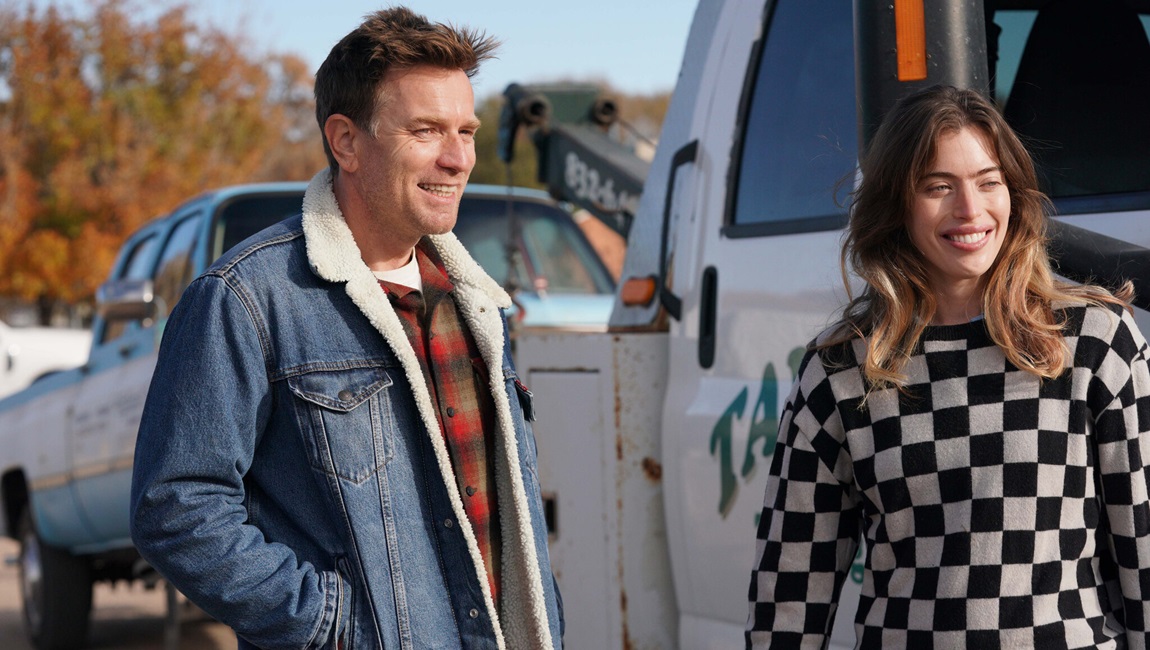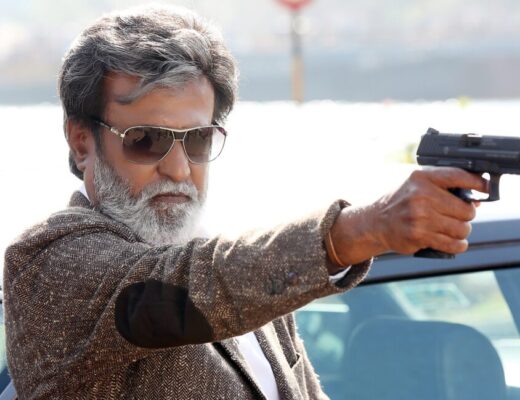Writing on the difficulties of representing addiction, Leslie Jamison notes that the process of sobriety is seen as a “tedious addendum” to the riveting blaze of addiction. While self-destruction makes headlines, wellness simply doesn’t make for very enticing literature. Of course, those who are sober know otherwise; it’s a precarious affair which demands an addict’s unwavering attention. The rewards are always on a tenuous horizon. Enter Emma Westenberg’s directorial debut, Bleeding Love, a well-intentioned film which tries to fashion sobriety — in particular, the act of making amends — into a compelling narrative. But the film’s contrived script, penned by Ruby Caster, is too invested in spelling out, step-by-step, what addiction is, and this ultimately eschews a nuanced exploration on the never-ending muck of sobriety. Simply put, Bleeding Love doesn’t trust its audience to handle the gravity and horror of addiction.
The film follows a nameless father (Ewan McGregor) and daughter (Clara McGregor) as they go on a road trip through New Mexico. The daughter has just been discharged from the hospital following a serious overdose, and her estranged father is a recovering addict trying to make amends for being mostly absent from her life. Through a series of awkwardly placed childhood flashbacks that are predictably filtered through warm and bright hues, we learn that the father used to be a very good father… until he wasn’t. While all of this is perfectly serviceable in establishing a complicated relationship between the daughter and the father, it’s used to compensate and paper over the gnawing lack of characterization and narrative momentum in the present. Brazen whip pans and shaky camerawork also end up being more distracting than actually functional.
Take, for example, a scene where the father brings his daughter to an AA meeting. He is pouring his heart out, full of regret for abandoning his child and being a terrible parent. The camera zooms in on his face, presumably so we can appreciate Ewan McGregor’s many talents. But since the camera is shaking so violently — and not in a manner that enhances this specific moment of vulnerability and courage — we are rudely taken away from what could have been a provocative sequence. It’s to McGregor’s credit that he delivers a devastatingly tender performance with very little, but even that is not enough to hold the film’s disparate threads together. Most of Bleeding Love relies on such explicit proclamations of regret, as if not trusting its actors to do the work of subtlety. While the beauty of AA meetings stems from the generosity inherent in being honest with yourself and others, the film reduces the immensity of making amends to mere linguistics. In Bleeding Love, the difficult work required to actually mend a relationship broken by addiction is made easy.
It’s expected that a road-trip film would involve characters encountering various obstacles along the way that impede their arrival at an intended destination, which in Westenberg’s film, is a rehab house. It’s also expected that said obstacles would mean something to the film, and maybe even drive the plot forward. But in Bleeding Love, these obstacles are exactly what they are: obstacles. Throughout their journey, father and daughter encounter various people, so clearly and literally defined by their purpose — for example, a lonely sex worker hitches a ride with them to tell us how precious having family is — that there is little depth to be developed by their presence. Often, these side quests are thinly sketched with little to zero relevance to the father and daughter’s emotional turmoil.
Still, one can appreciate the sincerity that flows through Bleeding Love, which earnestly portrays addicts as complex and flawed human beings who work hard to deserve their second chances. In a sea of media texts which vilify addiction, such heartfelt earnestness is a rare gift. It’s all the more unfortunate, then, that the film’s potential is so squandered by haphazard aesthetic choices and contrived cliches.
DIRECTOR: Emma Westenberg; CAST: Ewan McGregor, Clara McGregor, Jake Weary, Vera Bulder; DISTRIBUTOR: Vertical; IN THEATERS: February 16; RUNTIME: 1 hr. 42 min.







